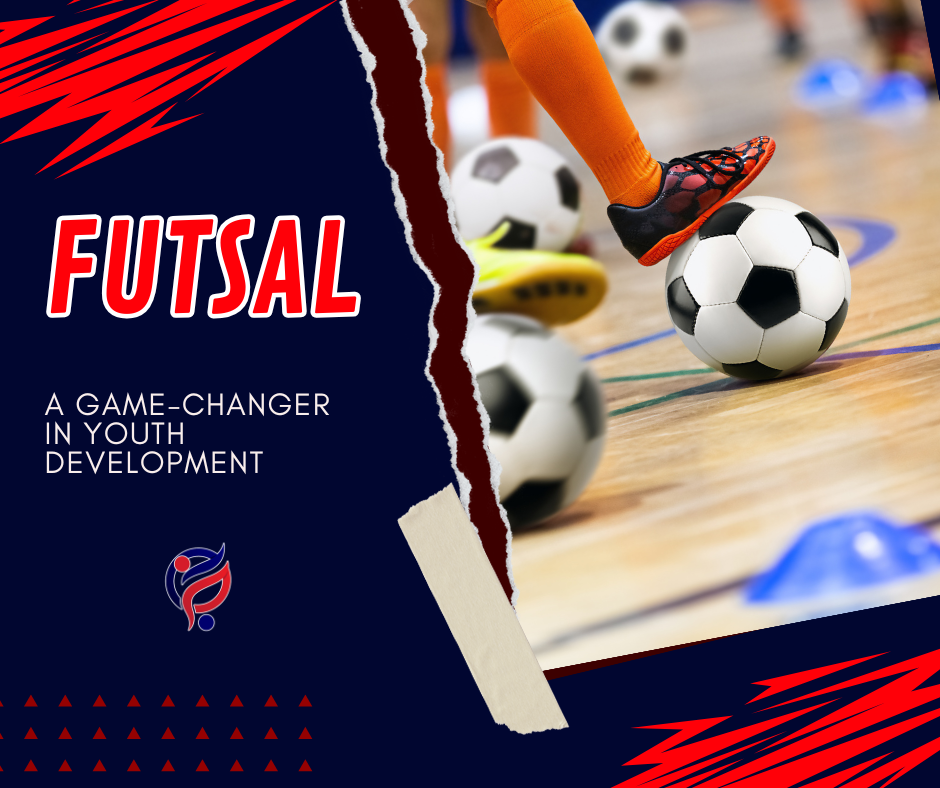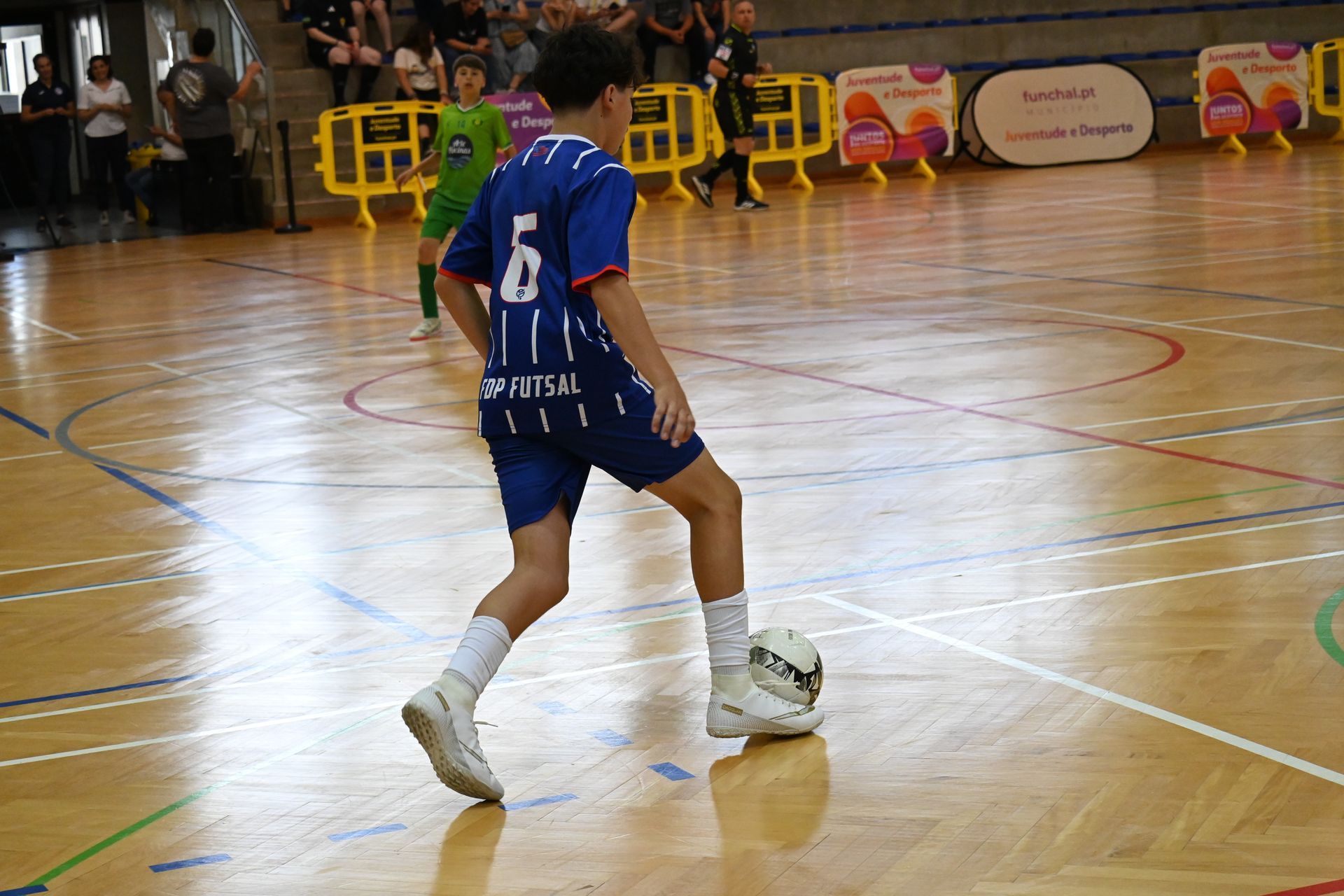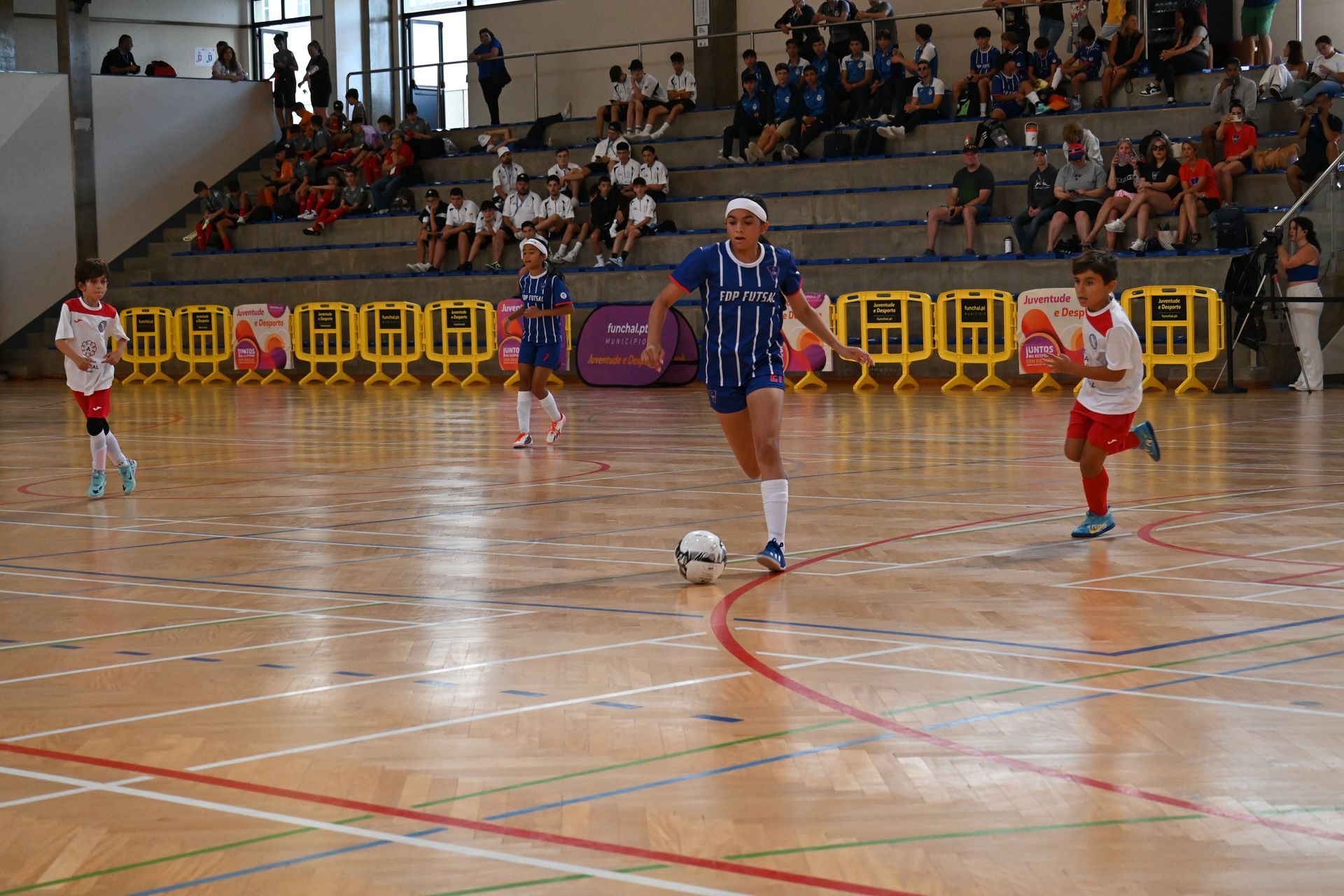Developing Soccer Intelligence through Futsal: A Comparative Analysis
Developing Soccer Intelligence through Futsal:
A Comparative Analysis

Soccer intelligence is a multifaceted skill that differentiates good players from great ones. It involves spatial awareness, anticipation, decision-making, tactical understanding, problem-solving, emotional intelligence, learning from mistakes, and vision. Legendary coach Johan Cruyff emphasized the significance of actions taken during the moments without the ball, underscoring that soccer is predominantly a brain game. This article explores how playing futsal—a variant of soccer played on a smaller, indoor pitch—can accelerate the development of soccer intelligence.
The Essence of Soccer Intelligence
Soccer intelligence encompasses several critical aspects that a player must develop:
- Spatial Awareness: Recognizing and exploiting space.
- Anticipation: Reading the game and predicting movements.
- Decision Making: Choosing the best course of action under pressure.
- Tactical Understanding: Grasping team strategies and roles.
- Problem Solving: Adapting to unforeseen game situations.
- Emotional Intelligence: Managing stress and emotions.
- Learning from Mistakes: Improving through experience.
- Vision: Seeing potential plays before they unfold.
Futsal: A Catalyst for Developing Soccer Intelligence
Futsal offers a unique environment that naturally enhances these aspects of soccer intelligence. Here’s how:
1. Enhanced Spatial Awareness
In futsal, the smaller pitch size and fewer players necessitate acute spatial awareness. Players must constantly scan their surroundings, identify available spaces, and make quick decisions on where to move. This heightened sense of spatial awareness seamlessly translates to the larger soccer pitch, where players can exploit spaces more effectively.
2. Superior Anticipation
The fast-paced nature of futsal demands quick thinking and rapid response. Players learn to anticipate opponents' moves and react instantly, a skill that is crucial in soccer. The reduced reaction time in futsal sharpens a player's ability to foresee and intercept plays, making them more perceptive on a soccer field.
3. Quick Decision Making
Futsal’s continuous action and frequent transitions require players to make swift decisions under pressure. Whether it's choosing to pass, dribble, or shoot, these decisions must be made in split seconds. This constant decision-making process enhances a player's ability to make smart choices in high-pressure soccer matches.
4. Deep Tactical Understanding
In futsal, players often switch between attacking and defensive roles. This fluidity helps them understand various tactical scenarios and their respective responsibilities. Such comprehension is vital in soccer, where understanding one's role within the team's strategy can make a significant difference.
5. Advanced Problem Solving
Unpredictable situations are common in futsal, forcing players to think on their feet and come up with solutions quickly. This problem-solving ability is crucial in soccer, where unexpected events—like an opponent's tactical shift or a sudden score change—require immediate and effective responses.
6. Emotional Intelligence
Futsal's intense and fast-paced environment helps players develop resilience and composure. The ability to stay focused and calm under pressure, developed in futsal, is invaluable in soccer, especially during high-stress situations like penalty shootouts or crucial match moments.
7. Learning from Mistakes
The rapid nature of futsal means mistakes are frequent but also quickly forgotten as the game moves on. This creates a rich learning environment where players can make and rectify mistakes within the same match. This iterative learning process fosters growth and reduces the likelihood of repeating errors in soccer.
8. Enhanced Vision
The close-quarters gameplay of futsal requires players to develop exceptional vision. They need to spot teammates and make precise passes in tight spaces. This skill translates to soccer, where players can execute creative plays and see opportunities that others might miss.
Practical Training Insights
To maximize the benefits of futsal for soccer intelligence, coaches should:
- Integrate Futsal Drills: Regularly incorporate futsal-based drills in soccer training to enhance quick thinking and decision-making.
- Emphasize Small-Sided Games: Use small-sided games in training sessions to simulate futsal conditions, promoting spatial awareness and tactical understanding.
- Encourage Free Play: Allow players the freedom to make decisions and learn from their mistakes, fostering a problem-solving mindset.
- Focus on Rapid Transitions: Design drills that emphasize rapid transitions between attack and defense, mirroring the fluid nature of futsal.
Implementation Strategies for Coaches
Integrating Futsal in Soccer Training Programs
To fully harness the benefits of futsal for developing soccer intelligence, coaches need to implement structured and well-thought-out strategies. Here are some practical ways to incorporate futsal principles into soccer training programs:
- Weekly Futsal Sessions:
- Frequency: Schedule at least one futsal session per week.
- Focus: Emphasize quick transitions, close ball control, and rapid decision-making.
- Small-Sided Games:
- Setup: Regularly organize 3v3 or 4v4 games on smaller pitches during soccer training.
- Objective: Encourage players to utilize tight spaces, improve passing accuracy, and enhance teamwork.
- Drills for Spatial Awareness and Vision:
- Exercises: Include drills that require players to navigate through congested areas, such as rondos (keep-away games) and positional games.
- Outcome: Improve players' ability to find and create space, and develop their vision to spot passing opportunities.
- Decision-Making Drills:
- Scenarios: Simulate game scenarios where players must make quick decisions, such as counter-attacking drills or defensive recovery exercises.
- Evaluation: Provide immediate feedback to help players understand the impact of their decisions.
- Tactical Games:
- Implementation: Use futsal-style tactics in training games, such as high pressing and rapid defensive transitions.
- Understanding: Help players understand how these tactics can be applied to soccer, enhancing their overall tactical awareness.
Monitoring and Assessment
To ensure that the integration of futsal into soccer training is effective, regular monitoring and assessment are essential:
- Performance Analysis:
- Metrics: Track players' performance metrics during both futsal and soccer sessions, focusing on areas like decision-making speed, passing accuracy, and spatial awareness.
- Feedback: Provide constructive feedback based on performance data to guide player development.
- Video Analysis:
- Tool: Use video analysis to review futsal and soccer games.
- Review: Highlight key moments where futsal skills have positively impacted soccer performance, reinforcing the benefits of futsal training.
- Player Feedback:
- Sessions: Conduct regular feedback sessions with players to discuss their experiences and progress.
- Adjustments: Make necessary adjustments to training programs based on player input and observed improvements.
Success Stories and Case Studies
Several professional soccer players and teams have successfully integrated futsal into their training routines, yielding impressive results. These success stories can serve as motivation and proof of concept for coaches and players considering this approach:
- Lionel Messi:
- Background: Messi's early years playing futsal in Argentina honed his close ball control and quick decision-making, skills that are evident in his soccer career.
- Impact: His exceptional dribbling and spatial awareness are often attributed to his futsal background.
- Brazilian National Team:
- Training: Many Brazilian players, including legends like Ronaldinho and Neymar, grew up playing futsal.
- Results: The skills developed in futsal, such as creativity and agility, have contributed to Brazil's success on the world stage.
- Spanish Clubs:
- Approach: Clubs like FC Barcelona have incorporated futsal training for their youth teams.
- Outcomes: This has led to the development of technically gifted players with superior tactical understanding and decision-making abilities.
Futsal is a powerful tool for developing soccer intelligence. The unique demands of the game—such as rapid decision-making, spatial awareness, and problem-solving—enhance critical skills that are directly transferable to soccer. By incorporating futsal into soccer training programs, coaches can accelerate the development of these skills, preparing players to excel in both the physical and mental aspects of the game.
The integration of futsal principles into soccer training requires a strategic approach, including regular futsal sessions, small-sided games, decision-making drills, and continuous monitoring and assessment. Success stories from professional players and teams underscore the effectiveness of this methodology.
Ultimately, fostering soccer intelligence through futsal not only improves individual player performance but also enhances overall team dynamics, leading to more cohesive and tactically astute soccer teams.
Contributed By Niko Alexopoulos
DON'T MISS ANY BLOG POSTS
Unlock Exclusive Insights: Subscribe Now & Stay Ahead of the Curve! Don't Miss a Single Blog Post—Join Our Community for Expert Tips, Fresh Perspectives, and Insider Knowledge. Your Ticket to Stay Informed, Inspired, and Empowered Awaits!
MAXIMIZE YOUR POTENTIAL
Empower Your Journey: Subscribe for Exclusive Access to Training, Programs, Camps, and Events. Elevate Your Skills and Seize Every Opportunity!











